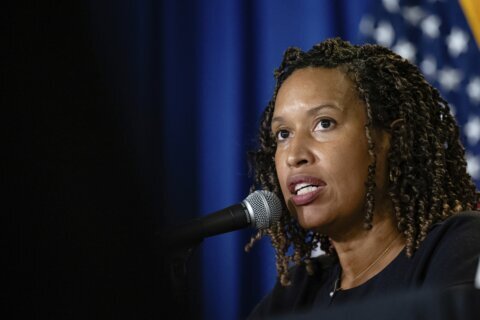WASHINGTON — From the football field to your smartphone: A new app is changing the way youth and high school sports concussions are documented.
Coaches, parents and athletic trainers can be authorized to report suspected concussions through the InjureFree app. The interface allows an adult to describe the sport, type of injury, symptoms, if the athlete returned to play and other important information that can be recognized and tracked.
“Parents would be able to update signs and symptoms that are occurring at home. Real-time alerts are being sent to everyone within the connected care community. The organization is able to track and record all that information. So (a coach) can have a list of all pre-existing injuries,” says CEO Charlie Wund.
He says an app that recognizes brain injuries like this is critical, especially during youth and high school sports events where there might not be a trained medical professional on hand.
“There’s a lot of information gaps. It’s about collecting as much information as we possibly can from whoever is on site and giving them the right tools to do that. Then aggregating and passing that information onto a medical professional to review it. We want them to be able to look through all the information and make the right clinical decision.”
The information shared through the app can help doctors treat concussions or help school officials track injuries to players.
The software is provided through local boards of education or health departments. Currently, the app is available for D.C. schools, and Wund says the goal is for every D.C. school to adopt the technology by the start of the 2016-2017 school year. The app is also being rolled out for the District’s Department of Parks and Recreation.
Developers are in talks with Virginia and Maryland officials too.
Doctors say they’re learning more about how concussions affect college and professional athletes but there needs to be even more research on youth head injuries.
“The research right now for youth populations is minimal. In fact, the Institute of Medicine’s 2013 report identified that we were lacking in terms of our knowledge of this injury in kids … Our ability to make good policy decisions for younger kids and for girls involved in sports is not based on good scientific evidence at this point. Nevertheless, in 2009, we recognized we needed to do something,” says Dr. Gerry Gioia, division chief of neuropsychology and director of Safe Concussion Outcome, Recovery & Education at Children’s National Health System.
Gioia hopes that this documentation and tracking system will be adopted nationwide so that brain injury research can break new ground.
InjureFree is partnering with Children’s National Health System and MedStar Sports Medicine. The D.C. Department of Health is funding the costs.
D.C. is one of the first major cities to provide a grant for research, education and monitoring of concussions in youth sports amid a nationwide push to educate the public about sports-related brain injuries.
A few weeks ago, the Virginia Commission on Youth submitted recommendations related to concussions to Gov. Terry McAuliffe, including proposals for additional education, training, resources and support.
Congress is expected to launch a broad review of concussions this year.







